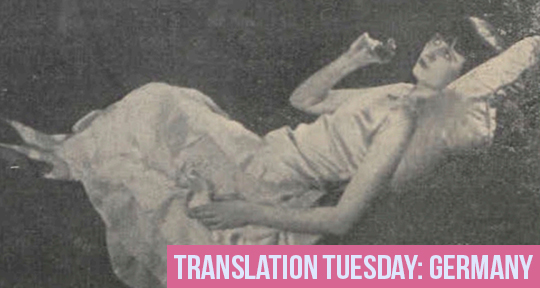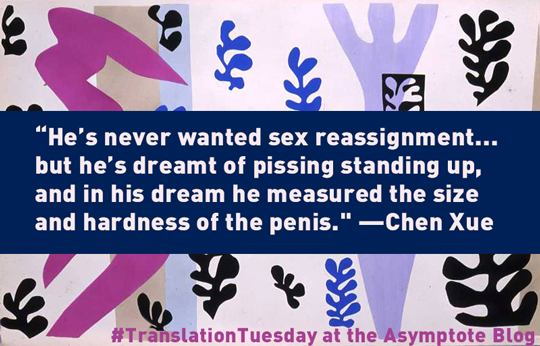Ever kept a secret way longer than you thought you would? A year? Two? What about seven? In this novel excerpt from French author Wendy Delorme, brilliantly translated by Asymptote’s own Kathryn Raver, a story of a love unspoken becomes a story about the nature of literature itself, and the parallels between writing and self-creation. Isolated in a mountain cabin, an unnamed writer reflects back on the years leading up to their relationship with their now-lover. At first hesitant to confess her feelings, she instead watches her friend’s gender transition unfold over the course of several years, only to find that as their voice and appearance change, her feelings for them deepen. When, after a an encounter on a rainy night, her feelings finally come to light, it sparks an epistolary conversation that will change both their lives. Read on!
A restless night. Sleep escapes me, but the words don’t come either. What does come is the thought of writing to you. I’m thinking again of how we met. How we really met. That night where I knew I wanted you.
Sometimes, a person comes along and we see them. Truly see them, I mean. Our perspective changes. Our line of sight suddenly sharpens, like that of an animal scrutinizing the brush to see what moves within. Our retinae focus, taking in details that up until that point had blurred together into a hazy landscape. The eye becomes curious and searches for more, latches onto a mouth, the clean line of an eyebrow, the velvety texture of a cheek, a shoulder muscle, a manner of smiling. This sort of gaze, when it lands on another, radically changes the bond two people share.
What turned my gaze on its head, that night? READ MORE…





